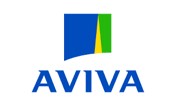What is PCNL?
Percutaneous nephrolithotomy (PCNL) is a surgical procedure designed for the removal of large or complex kidney stones, typically when less invasive treatments such as shock wave lithotripsy are inadequate. The process involves a small incision in your back to directly access your kidney. Through this incision, a nephroscope (a type of endoscope) is inserted, allowing the surgeon to visualize and remove the kidney stones under X-ray guidance.
Before your procedure
Preparation:
- Diagnostic imaging, such as an ultrasound or CT scans, to determine the exact size and location of the stone(s).
- Routine urine and blood tests to ensure the kidneys are functioning normally and that there is no infection.
- If you are taking blood thinners like warfarin, you will need to pause them before the surgery.
During your procedure:
- You will change into a surgical gown and receive a general anaesthetic to ensure you are asleep and pain-free during the procedure.
- The operation begins by inserting a telescope-like instrument (cystoscope) through your urethra (the tube which carries urine from your bladder and out of your body) into the bladder. A fine tube is then passed from the bladder up the ureter into the kidney. A dye (contrast medium) goes up the tube and outlines the structures inside your kidney and the stone(s), so they are visible to surgeon on X-ray imaging. This part of the procedure is carried out whilst you are positioned on your back.
- You are moved on to your front (lying face down). Using X-ray guidance, a fine needle is placed through the skin of your back and into the kidney. The needle position is confirmed by either outflow of urine or dye from the needle. The path of this needle (the tract) becomes the passage for performing the rest of the procedure.
- Once the kidney has been entered, a small incision is made in your back and the needle tract into the kidney is then stretched (dilated) to allow a telescope (nephroscope) to be passed into the kidney. A scope and other stone fragmentation tools such as a laser or an ultrasonic probe will be inserted through this tract to break up and remove the stone(s).
- The procedure typically lasts 2-3 hours.
- After the operation, a tube called a nephrostomy tube is left in your kidney using the same track. The nephrostomy tube allows urine to drain directly from the kidney into a bag worn outside the body during recovery. For complicated cases, this tube also leaves access to the kidney if more kidney stones or fragments of kidney stones need to be removed during the recovery time. Alternatively, a temporary internal stent (hollow tube) is positioned between the kidney and bladder.
- A catheter is left in the urethra to ensure good urinary drainage.
- The kidney stones are sent to a lab to check what types of stones they are. Knowing what type of kidney stone(s) you have may help us advise how to prevent future stones.
After your procedure:
- You will be monitored in the recovery area before returning to the ward.
- The catheter will usually be removed on the day following surgery.
- An x-ray is taken on the morning after surgery to look for any remaining stone fragments.
- The kidney drain is usually removed within 48 hours following surgery.
- You will usually stay in hospital for a few days post-procedure to ensure proper healing and management of any pain.
Your recovery at home:
- Once home, you may be able to return to work after about a week.
- You may need to avoid heavy lifting and pushing or pulling for 2 to 4 weeks after surgery.
- If you have drainage tubes in the kidney left after surgery, you will need to watch for any bleeding. If you notice blood in your urine or drainage tube please contact your consultant.
- If a stent was inserted, you will be readmitted within 4 weeks to have this removed under local anaesthetic (i.e. you will be awake). This takes only a few minutes and involves passing a flexible telescope through the urine pipe into the bladder to remove the stent.
- Regular follow-up appointments are necessary to monitor your recovery and ensure that the kidney is functioning properly.
What problems may occur?
PCNL is performed commonly on the urology unit and complications are unusual.
- Infections are the most common problem. You will routinely receive antibiotics to try and prevent this happening.
- Bleeding from the kidney occasionally requiring a blood transfusion (5% of patients).
- Incomplete stone removal might need additional treatment including repeated surgery or shock-wave treatment (lithotripsy).
- Possible long-term drainage of the kidney or further surgical interventions.
Advantages of PCNL:
- Effective for large stones: PCNL allows for the removal of large stones in a single procedure, reducing the need for multiple treatments.
- Minimally invasive: The small incision reduces recovery time, pain, and complications compared to open surgery.
- High success rate: PCNL has a high success rate in completely removing kidney stones, with a lower likelihood of recurrence.
How can I prevent stones reforming?
To prevent the recurrence of kidney stones, the most effective strategy is to keep your urine diluted. This is best achieved by drinking plenty of water, aiming to produce at least 2 litres of urine each day, particularly in hot weather. Once the composition of your kidney stone is determined, we can offer more targeted advice to help prevent future stones. If you have a history of kidney stones, your urologist might recommend more comprehensive tests, such as a 24-hour urine collection, to tailor your prevention strategy more effectively.
Why choose Birmingham Urology Centre for your treatment?
At Birmingham Urology Centre, our team of experts uses the latest technology and techniques to perform PCNL, providing you with the best possible outcome. We are committed to offering personalised care that minimises discomfort and facilitates a quick return to your normal activities.
Contact us
If you are experiencing symptoms related to kidney stones and think you may need treatment, please don’t hesitate to contact us to discuss whether PCNL could be suitable for you. Our specialists are ready to provide expert diagnosis and discuss the best treatment options tailored to your condition. Schedule your consultation today and take the first step towards improving your urinary health.








